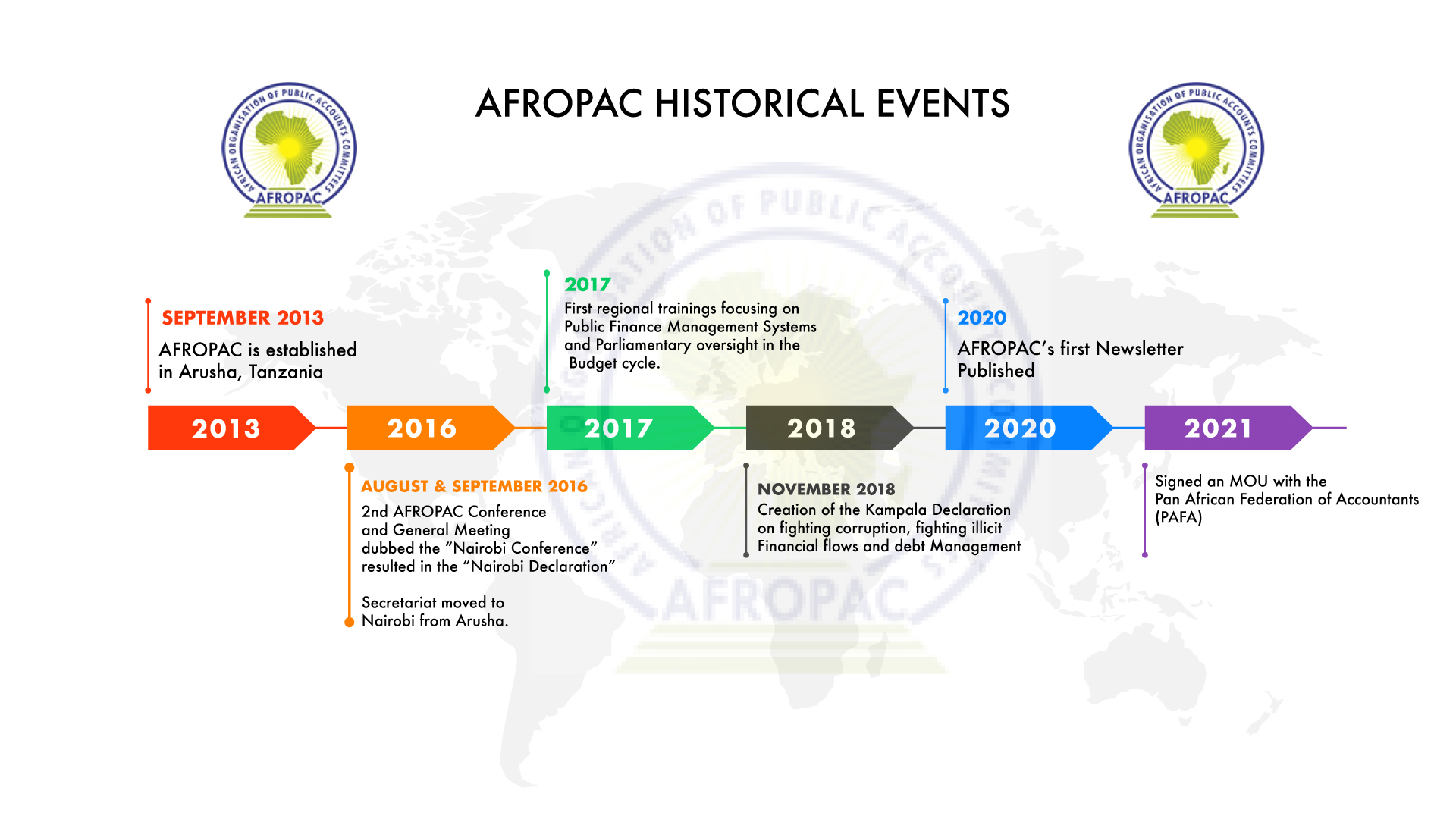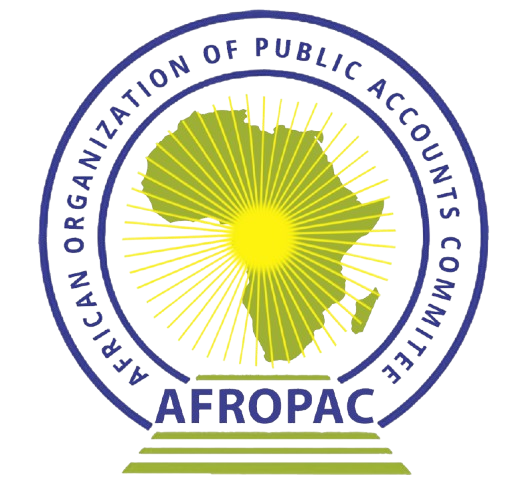Promoting collaboration among Public Accounts Committees throughout the African continent.
Who we are
The African Organization of Public Accounts Committees (AFROPAC) is a pan-African organization comprising the Public Accounts Committees (PACs) of various African parliaments. Its purpose is to develop the necessary tools for best practices among regional PACs, in order to strengthen accountability and transparency in the use of public funds.
As parliamentary oversight evolves globally, there is a pressing need for a robust network of peers to nurture competence and share lessons learned. This need was recognized when AFROPAC was established on September 2, 2013, in Arusha, Tanzania.
How we work
AFROPAC was formed following a series of discussions among representatives of regional PAC bodies, who acknowledged the necessity for African parliaments to pursue common goals and objectives. Transparency and accountability in the audit process are dependent on the control systems within the government institutions.
AFROPAC is evolving into a unique platform for networking and collaboration across Africa to raise the bar in oversight and accountability on the continent. We aim to establish a unified framework for PACs across Africa to enhance peer exchange, share knowledge, exchange experiences, benchmark best practices, and hence promote accountability, transparency, and sound financial practices through parliamentary oversight.
Our Subregional Networks
We have three subregional networks, which play a vital role in our collaborative efforts:
- Southern Africa Development Community Organization of Public Accounts Committees (SADCOPAC)
- West Africa Association of Public Accounts Committees (WAAPAC)
- Eastern African Association of Public Accounts Committees (EAAPAC)
Our History

Strategic Priorities
AFROPAC has 3 strategic priorities. It is based on these priorities that the operational activities for each year are based on:
1. Advocate
We advocate to promote the visibility, attractiveness, credibility, and effectiveness of AFROPAC in the continental and international fora.
2. Build capacity
We recognize the importance of growing stronger continuously to successfully deliver on our mandate as defined in our Constitution. This covers both the dimensions of human capacity and organizational capacity.
3. Promote Financial Efficiency and Autonomy
The primary role of Public Accounts Committees and similar committees is to promote better financial management in the public sector. Therefore, as a network of such committees, we are beholden to the taxpayers to use our resources efficiently. We also recognise that financial autonomy is critical for us to act objectively, independently, and respect our core values
Our Thematic Areas
AFROPAC’s work is guided by three thematic areas, which shape its annual operational activities and engagements with members and partners across the continent. They reflect the key areas where parliamentary oversight can drive meaningful impact in public finance governance:
1. Illicit Financial Flows and Corruption (IFFs)
AFROPAC works with partner organizations to empower its members with knowledge on the causes, patterns, and legislative gaps that enable revenue loss. This equips Parliamentarians to take informed action at national and regional levels to curb IFFs and strengthen financial integrity.
2. Debt Policy and Management
With many African countries facing rising debt burdens, particularly in the post-pandemic era, sound debt management is a critical area of focus. AFROPAC supports Parliamentarians and oversight committees in scrutinizing debt policies, ensuring transparency, and promoting sustainable borrowing practices.
3. Budget Efficiency
Parliaments are central to promoting fiscal responsibility and transparency. AFROPAC strengthens the capacity of members to monitor budget implementation, assess outcomes, and advocate for budgets that effectively address the developmental needs of citizens.
Strategic Priorities
AFROPAC has 3 strategic priorities. It is based on these priorities that the operational activities for each year are based on:
1. Advocate
We advocate to promote the visibility, attractiveness, credibility, and effectiveness of AFROPAC in the continental and international fora.
2. Build capacity
We recognize the importance of growing stronger continuously to successfully deliver on our mandate as defined in our Constitution. This covers both the dimensions of human capacity and organizational capacity.
3. Promote Financial Efficiency and Autonomy
The primary role of Public Accounts Committees and similar committees is to promote better financial management in the public sector. Therefore, as a network of such committees, we are beholden to the taxpayers to use our resources efficiently. We also recognise that financial autonomy is critical for us to act objectively, independently, and respect our core values
Our Thematic Areas
AFROPAC’s work is guided by three thematic areas, which shape its annual operational activities and engagements with members and partners across the continent. They reflect the key areas where parliamentary oversight can drive meaningful impact in public finance governance:
1. Illicit Financial Flows and Corruption (IFFs)
AFROPAC works with partner organizations to empower its members with knowledge on the causes, patterns, and legislative gaps that enable revenue loss. This equips Parliamentarians to take informed action at national and regional levels to curb IFFs and strengthen financial integrity.
2. Debt Policy and Management
With many African countries facing rising debt burdens, particularly in the post-pandemic era, sound debt management is a critical area of focus. AFROPAC supports Parliamentarians and oversight committees in scrutinizing debt policies, ensuring transparency, and promoting sustainable borrowing practices.
3. Budget Efficiency
Parliaments are central to promoting fiscal responsibility and transparency. AFROPAC strengthens the capacity of members to monitor budget implementation, assess outcomes, and advocate for budgets that effectively address the developmental needs of citizens.
